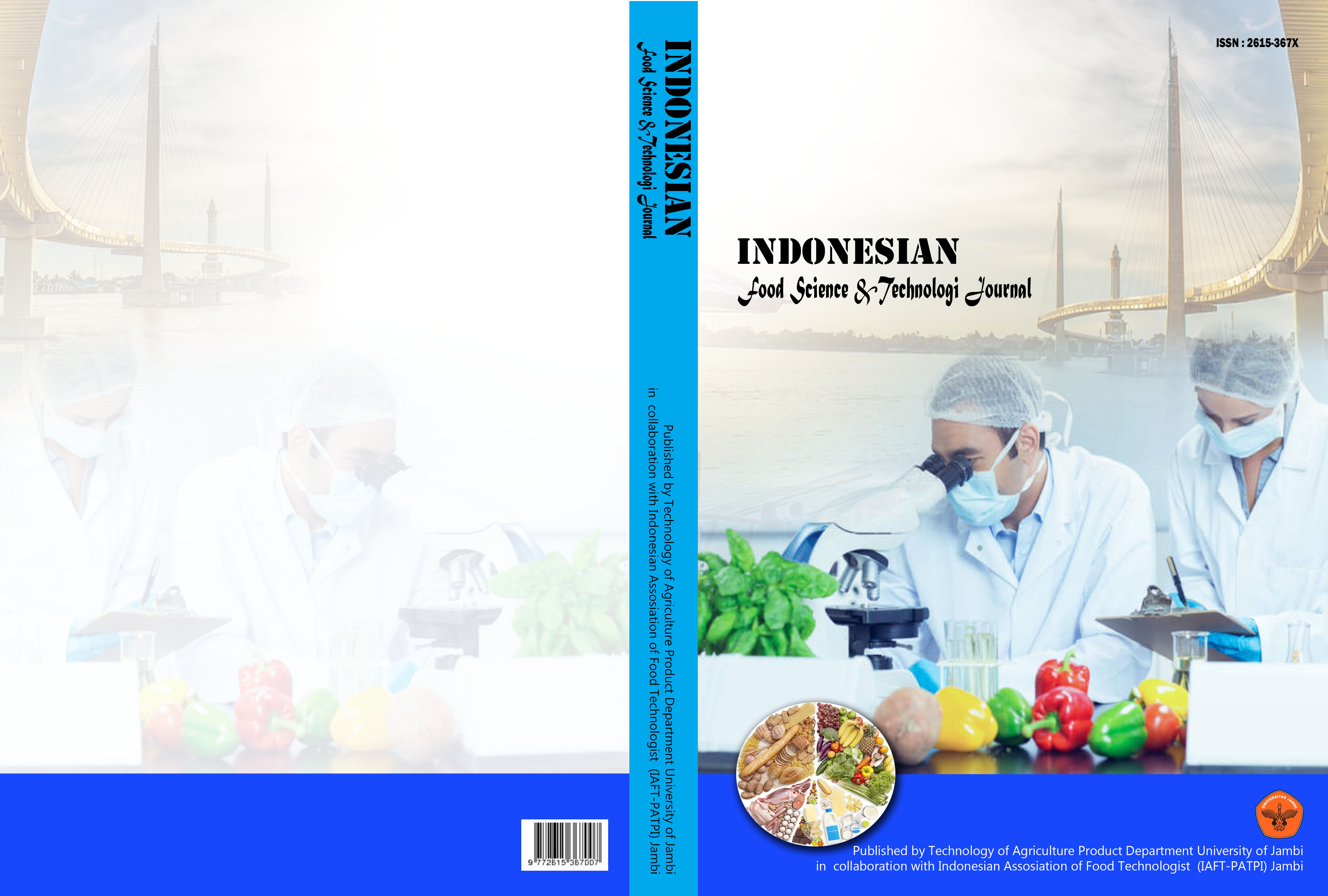Ferrous (Ii) Sulphate (Feso4) Indicator Label As Spoiled Meat Detector
DOI:
https://doi.org/10.22437/ifstj.v1i1.5015Keywords:
smart label, indicator, H2S, FeSO4Abstract
Smart packaging is the packaging that can monitor and provide the information about quality of the packed product. This study was aimed to produce a label with indicator ferri sulphate (FeSO4) to detect H2S produced by poultry and to study the color change of the label response to H2S exposure. Preliminary study showed that the best label was obtained with the formula of 3 grams chitosan, 70 ml acetic acid 1%, 30 ml aquadest and 2,5 gram FeSO4. It was also known that H2S concentration increased during storage at room temperature, from 0 ppm at the first hour to 18.3 ppm at 120th hour. There were significant differences in the value of L, a, b and °hue at α = 5%. Lightness value decreased from 34.26 to 7.44 in the end of storage. Value of a changed positively to red color, from 17.17 to 32.45 and value of b turned negative from 51.67 to 10.26. Therefore, °hue showed that at 0-24 hours indicator was in yellow-red zone, at 24-96 hours in red zone and at 120 hours in red-purple zone. Further, the study showed that meat stored in room temperature for 24 hours already spoiled. Microorganism was also detected to grow more during storage. The growth in the beginning was 7 × 105 cfu/gram and became 71.5 × 105 cfu/gram. Based on SNI, the limit for microorganisms is 10 × 105 cfu/gram. Ferri sulphate could be used as spoilage detector by changing the indicator color from yellow-red to dark brown.
Downloads
Downloads
Published
Versions
- 2018-05-18 (1)
- 2018-05-18 (1)



